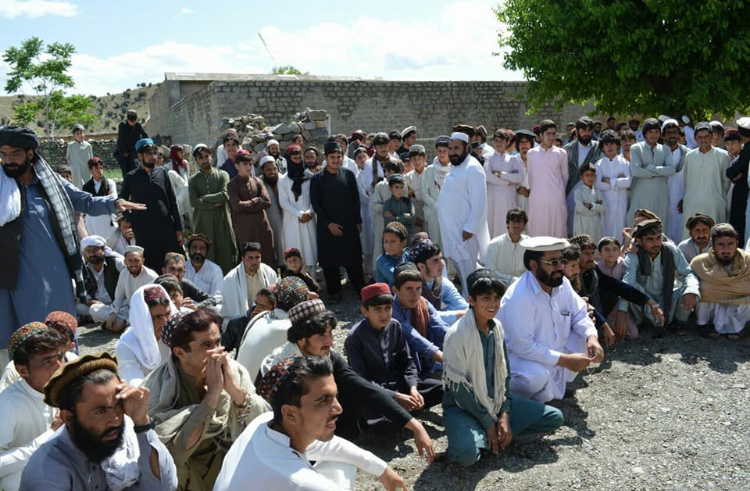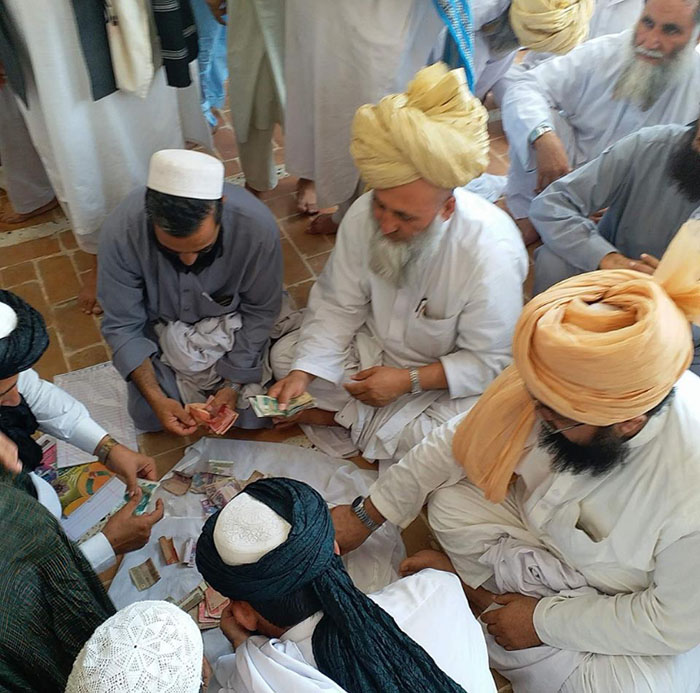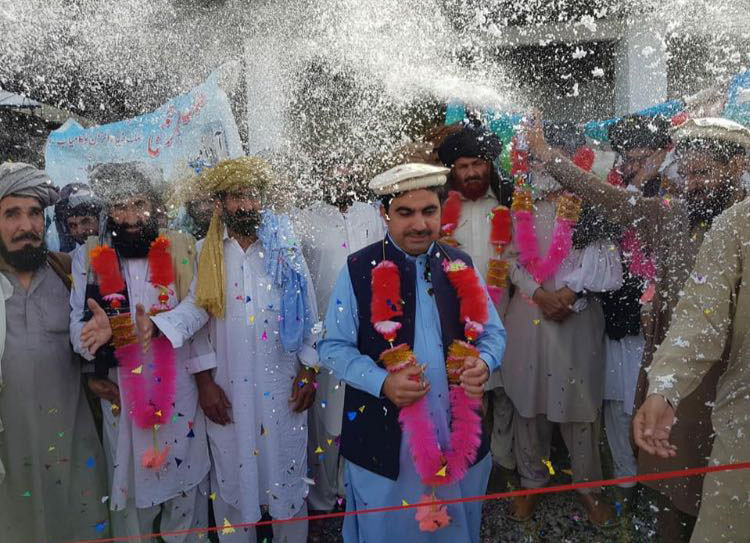Pakistan is in full-throttle election mode, and so is its previously ignored tribal belt, bordering Afghanistan.
In May, after a constitutional amendment, the Federally Administered Tribal Areas (FATA) was merged into the neighbouring Khyber Pakhtunkhwa province. With FATA's seats yet to be merged into the provincial assembly, the number of National Assembly seats up for grabs in the tribal areas remains the same as before — 12. And just like in any other part of the country, candidates here are also frantically campaigning for the July 25 polls.
But the stretch of land near Afghanistan is not an easy space for political canvassing. Firstly, it is still relatively new to the election process. The democratic right to vote was only granted to its residents in 1997. Secondly, the region has witnessed a series of military operations against local and international terrorist groups.
Take North Waziristan, for example. Spread over 4,473 square miles, the mountainous agency is home to the Dawar and Wazir tribes. There are an estimated 104,000 families — or 800,000 individuals — who live in the area, according to the government’s FATA Disaster Management Authority (FDMA). However, the 2017 population census put its headcount close to 650,000. The disparity, according to officials, may be due to the families that have yet to come home. In 2014, the Pakistan Army launched a long-awaited operation against militants in North Waziristan, as a result of which many of its residents migrated to other parts of the country to seek refuge. “Over 21,000 families of North Waziristan and the Khyber Agency have not returned to date,” says Sirajul Haq, the director general of the FDMA.

This is a serious concern in the run-up to the July polls. Political candidates do not want to be deprived of these votes and are asking for special arrangements to be made. But postal balloting, which is being offered by Pakistan's election commission to disabled persons and those who live away from their home constituencies, cannot be extended to the tribal belt.
As of now, there are a total of 274,205 voters registered in North Waziristan, of which 77,537 (28 per cent) are women and 196,668 (71 per cent) are men. The campaigning is largely designed to appeal to men since women rarely come out and vote in the conservative tribal belt. However, under the Elections Act 2017, passed last year, for a polling result to be considered valid at least 10 per cent of the votes case must be of women. It remains to be seen if this condition can be met in July.
Then there is this uncertainty about security which looms over North Waziristan. Political candidates are often seen moving with a large fleet of security guards or armed men.
But the same unease does not apply to the political atmosphere in next-door South Waziristan. The election fever here is at its peak. Posters and banners have plastered the area and corner meetings are a near-daily occurrence. There are a total of 324,165 voters registered in the agency.

“To date, 41 aspirants have filed their nomination papers from South Waziristan,” Mohammad Rafiq, the local election commissioner, tells Geo.tv. Requests to install CCTV cameras at sensitive polling stations has also been forwarded to the Election Commission Pakistan’s head office in Islamabad.
Maulana Fazl-ur-Rehman, president of the Jamiat Ulema-e-Islam (F) and Senator Mushtaq Ahmed Khan of the Jamaat-e-Islami have already held large political gatherings in the belt. Imran Khan, the chairman of the Pakistan Tehreek-e-Insaf, was scheduled to hold a rally in the Razmak area of North Waziristan on July 1 but had to cancel last minute.
PTI’s candidate for NA-48 (North Waziristan), Aurangzaib Khan, says, “Before the military operation and FATA’s merger, it was not possible for political bigwigs to visit the area. Now, there is much more freedom of movement”.
Political watchers predict a good showing by PTI in the tribal belt. While many of their candidates are contesting as independents, rather than on the party platform, the youth are flocking to their corner meetings and gatherings.

Irfan Wazir, a 30-year-old social worker in North Waziristan, is eager to cast his ballot for the first time. He has never voted in an election before. “I will vote for the candidate who has worked most for the internally displaced persons, promises better educational facilities and rights for our people.”
Malik Ghulam has been fielded by the Pakistan Peoples Party in North Waziristan. He has contested several elections prior to this, but this is the first time that he is truly excited about the outcome, he tells Geo.tv. “There is a lot of political activity now. If the election commission can further reduce incidents of rigging, it will motivate more people to vote.”
Officials in the area say they are working towards ensuring fair elections. Muhammad Ayaz Khan, the recently appointed Deputy Commissioner in North Waziristan, said that the administration is fully geared for free, fair and transparent elections, adding that officials are working around the clock to address concerns of candidates and voters.
“All the candidates who asked for security have been provided with armed gunmen and the concerned departments are working round the clock for the provision of missing facilities,” he said sharing that an election cell will be established for a smooth electoral process.
Title image: A Pakistani flag which is 210 feet long and 150 feet width displayed on a mountain in North Waziristan on March 23. Photo: APP
*An earlier version of the story said that Rehan Gul Wazir is the recently appointed Deputy Commissioner in North Waziristan. The error is regretted.


